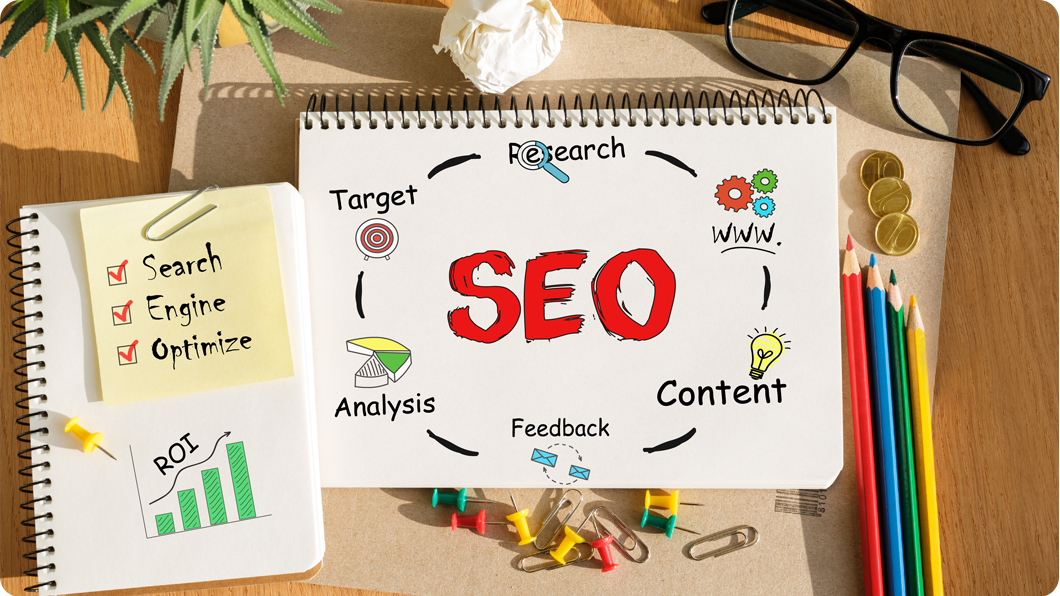In the competitive world of e-commerce, optimizing your Shopify store for search engines is essential for driving traffic and boosting revenue. While Shopify provides built-in SEO features, a strategic approach is necessary to maximize visibility and long-term growth.
This guide explores key Shopify SEO tactics, including keyword research, metadata optimization, site speed improvements, and backlink-building techniques to help your store outrank competitors and attract more customers.
1. Keyword Optimization: The Core of Shopify SEO
Why Keywords Are Important
Keywords are the search terms potential customers use to find products online. Proper keyword research ensures your store ranks in relevant search results, driving targeted traffic and increasing conversions.
How to Find High-Impact Keywords
Use tools like Google Keyword Planner, Ahrefs, and SEMrush to identify popular search terms.
Focus on long-tail keywords (e.g., “best organic face moisturizer” instead of “moisturizer”) for better audience targeting.
Analyze competitors’ product pages and blogs for keyword opportunities.
Where to Use Keywords in Shopify

Product Titles & Descriptions: Naturally integrate keywords without stuffing.
URLs: Keep them short, descriptive, and keyword-rich (e.g., yourstore.com/best-running-shoes).
Meta Titles & Descriptions: Write compelling, keyword-optimized content.
Image Alt Text: Improve SEO and accessibility by adding relevant keywords.
Blog Content: Publish informative blogs with keyword-rich topics to drive organic traffic.
Enhance your store’s SEO with WebNX SEO Services.
2. Optimizing Metadata for Higher Click-Through Rates (CTR)
What Is Metadata?
Metadata includes title tags and meta descriptions that appear in search engine results. Optimizing these elements can improve click-through rates and search rankings.
Best Practices for Shopify Metadata
Meta Title: Keep it under 60 characters, include keywords, and make it engaging (e.g., “Shop Handmade Leather Bags – Free Shipping”).
Meta Description: Limit to 160 characters, include a call-to-action (e.g., “Shop Now – Limited Stock Available”), and integrate keywords naturally.
3. Boosting Site Speed for Better Rankings & User Experience

Why Site Speed Matters
Google favors fast-loading websites, which improves search rankings. Slow sites lead to higher bounce rates and lost sales.
How to Improve Shopify Site Speed
Use a Lightweight Theme: Shopify’s Dawn theme is optimized for performance.
Optimize Images: Compress images (JPEG/WEBP) to improve load times.
Reduce Apps: Uninstall unnecessary apps to enhance site speed.
Enable Lazy Loading: Load images only when needed to speed up page performance.
Utilize a CDN: Shopify’s built-in Content Delivery Network (CDN) ensures faster content delivery worldwide.
For expert Shopify development, explore Shopify Development Services.
4. Building High-Quality Backlinks for SEO Success
Why Backlinks Are Crucial
Backlinks (links from other websites to yours) increase domain authority and improve rankings. Quality backlinks enhance credibility and drive organic traffic.
How to Earn Backlinks for Your Shopify Store
Guest Blogging: Write for industry blogs and include a link to your store.
Influencer Collaborations: Work with influencers for product reviews and backlinks.
Product Reviews & PR: Reach out to bloggers and journalists for product features.
Engage in Online Communities: Contribute to Reddit, Quora, and forums while linking back to your store.
Submit Your Store to Directories: List your Shopify store in reputable directories for added exposure.
5. Advanced Shopify SEO Strategies

1. Implement Structured Data (Schema Markup)
Helps search engines better understand your store’s content.
Shopify apps like JSON-LD for SEO automate schema implementation.
2. Strengthen Internal Linking
Link related product pages and blog posts for better navigation and engagement.
Improve functionality with E-commerce Development Services.
3. Optimize for Mobile Users
Ensure your Shopify store is fully responsive, as Google prioritizes mobile-friendly websites.
4. Conduct Regular SEO Audits
Use tools like Google Search Console and Ahrefs to monitor and refine your SEO strategy.
Start Optimizing Your Shopify Store Today!
A well-optimized Shopify store attracts organic traffic, increases conversions, and drives revenue growth. At WebNX, we specialize in Shopify development and SEO strategies to help businesses thrive online.
? Explore Our SEO Services
? Shopify Development Solutions
? E-commerce Development Expertise
Let WebNX take your Shopify store to the next level! Contact us today for expert SEO and development support.









